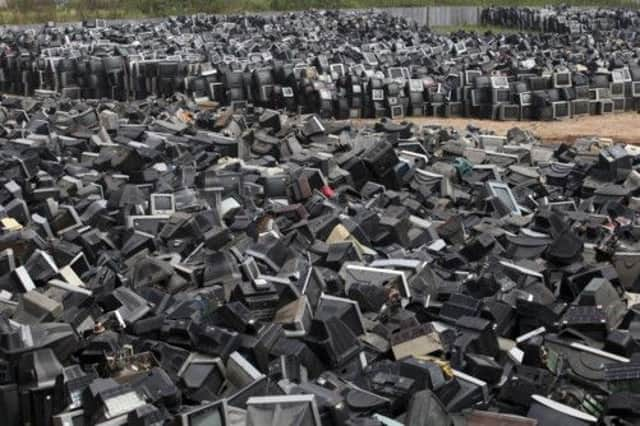China presses waste industry to clean up its act


But now the Communist authorities are clamping down on an industry that has helped the prosperous West dispose of its waste but also added to the degradation of China’s already pollution threatened natural environment.
The new campaign – dubbed Green Fence –is aimed at enforcing standards for waste imports after the Beijing decided too many were unusable or even dangerous and would end up in its landfills. Under the crackdown dubbed Green Fence, China has recently rejected hundreds of containers of waste it said were contaminated or that improperly mixed different types of scrap.
Advertisement
Hide AdAdvertisement
Hide AdIt is abruptly changing a multi-billion-pound global industry in which China is a major processing centre for the world’s discarded soft drinks bottles, scrap metal, electronics and other waste.
Whole villages in China’s south-east are devoted to processing single products, such as electronics. Household workshops break down old appliances to recover copper and other metals. Some use crude smelters or burn leftover plastic and other materials, releasing lead and other toxins into the air.
China’s recycling industry has boomed in the past 20 years. Its manufacturers needed the metal, paper and plastic and Beijing was willing to tolerate the resulting pollution. Millions of tonnes of discarded plastic, computers, electronics, newspapers and shredded cars and appliances are imported every year from Europe, the United States and Japan. But environmentalists have long complained the industry is poisoning China’s air, water and soil. And Beijing, ever vigilant about possible threats to one-party rule, now wants to be seen as addressing public concern over pollution.
“The waste recycling system in China really needs to be updated to reduce pollution,” said Lin Xiaozhu, head of the Chinese group Friends of Nature.
In Europe, electronics recyclers recover about 2.2 million tons of plastic and metal annually and send about 15 to 20 per cent of that to China, according to Norbert Zonnefeld, executive secretary of the European Electronics Recyclers Association. Its 40 member companies include electronics manufacturers and copper smelters.
European recyclers welcome China’s tighter enforcement because it will help them comply with EU rules on tracking waste and ensuring it is properly handled, said Mr Zonnefeld. Still, he said, some traders have run into trouble. “I have heard material has been sent back,” said Mr Zonnefeld. “Of course, they should have known. They were just gambling.”
The US relies even more heavily on China to recycle its waste.
Americans threw away 32 million tonnes of plastic in the form of packaging, appliances, plates and cups last year, according to the US Environmental Protection Agency. About 1.1 million tonnes was sent for recycling.
Advertisement
Hide AdAdvertisement
Hide AdAbout half of plastic soft drinks and water bottles collected in the US for recycling end up in China, according to Kim Holmes, director of recycling for the Society of the Plastics Industry in Washington. She said nearly all plastic from US electronics waste is exported to Asia.
China allows waste shipments to contain no more than 1 per cent unrelated material. But Customs officials say some were found to be up to 40 per cent unrecyclable refuse.
“Some unscrupulous traders, in order to maximise profit, smuggle medical and other waste inside shipments, a direct threat to everyone’s health,” said a Shanghai Customs Bureau statement.